‘Justice shouldn’t hurt’: Sisters expose NSW’s shameful secret
Sisters Pippa and Rose Milthorpe were put through the unimaginable after they disclosed they were being sexually abused. Warning: Distressing
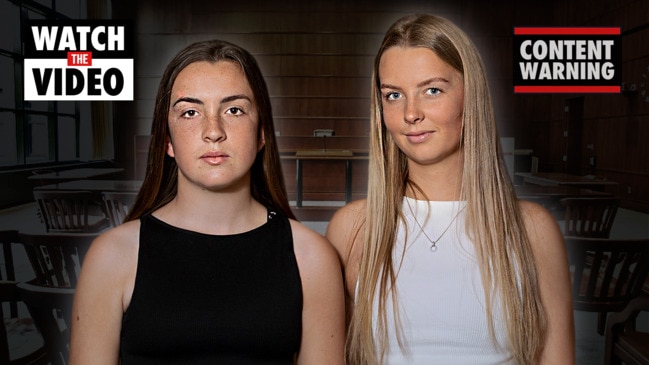
EXCLUSIVE
Rose and Pippa Milthorpe were seven and 11 years old when they took the stand in the trial of the man accused of sexually abusing them.
Both sisters say the court process was “cruel” and “traumatic”. Not only did they run into the accused in the foyer of the courthouse, they both faced days of cross examination without a parent present.
Rose says she felt like her age was used against her in court.
“I felt like they were trying to trick me because of my age.”
And then a juror did something truly unforgivable, falling asleep, forcing a new jury to be empanelled and Rose to have to give her evidence all over again.
“I was five when I first went to the police and by the time it was in court, I was seven and a half,” Rose, now 14, says.
“Then when it went to court I had to relive the moment three times, which is just even more traumatising, reliving it multiple times.”
Justice shouldn’t hurt, but for children in Australia, it does. The NSW government knows how to fix this problem, but has failed to do so. That’s why news.com.au is calling for law reform to make it easier for child victims of sexual abuse to give evidence. Join the movement and sign the petition here.
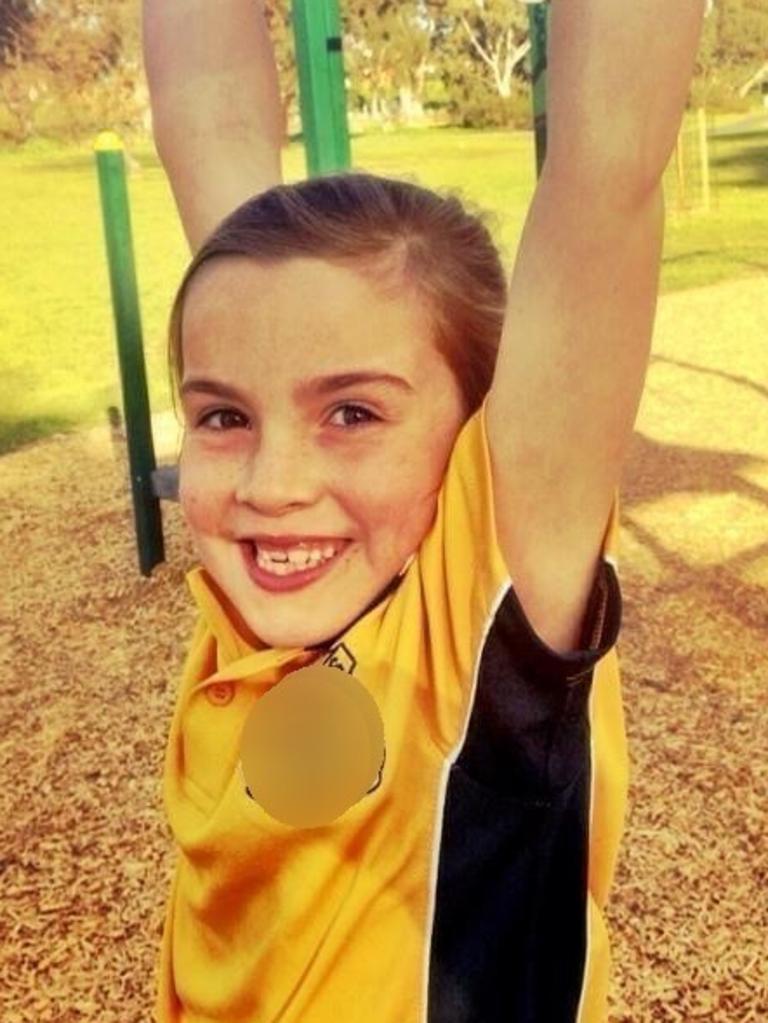
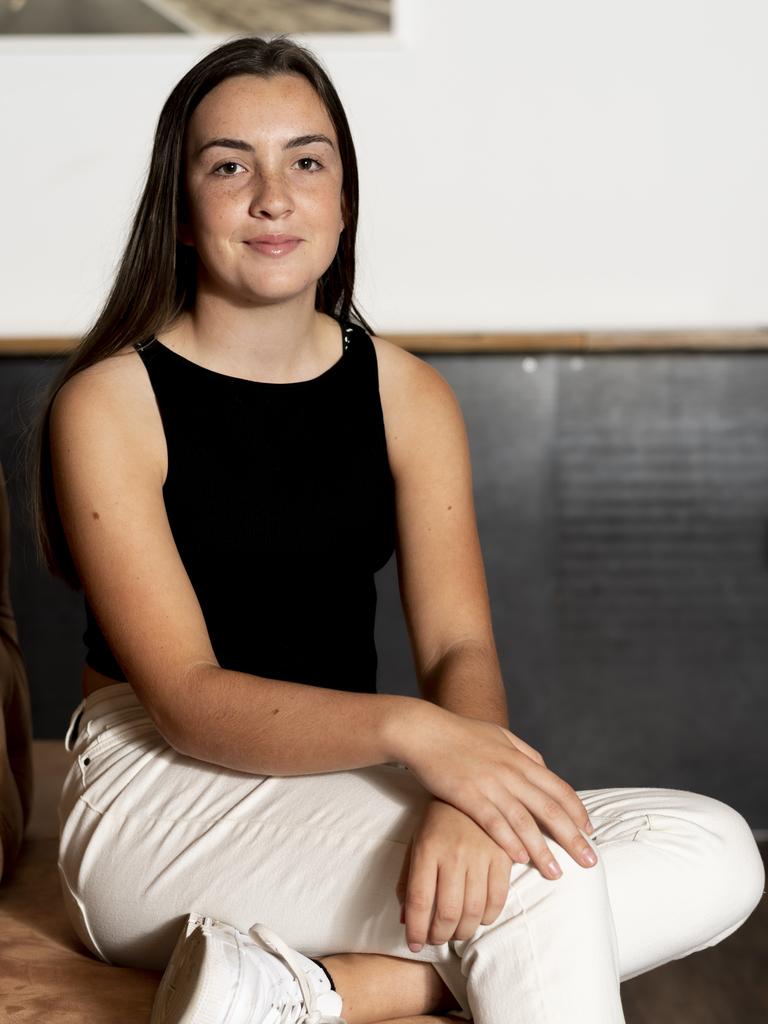
Rose and her older sister Pippa, now 17, from Albury, NSW, have just become the two youngest sexual abuse complainants in Australia’s history to win the right to self identify when sharing their story with court authorised media.
In June, the sisters made the decision to return to the same court system which had traumatised them to demand the right to be able to say their real names when speaking out about their ordeal.
The process of applying for a court exemption took several months and cost about $45,000 in legal work which was covered by news.com.au and the LetUsSpeak campaign, which you can donate to here.
“I want to share my story so that other people like me don’t feel like they are alone,” Rose, now 14, says.
“Stories like mine need to be heard. If I was old enough at five to give a police interview, and old enough at seven to be cross examined for hours and hours, then why at 14 would I not be old enough to decide to tell my own story the way I want?
“It should be my choice to share it with who I want.”
Pippa, who is now 17, says she needed her story to “mean something, to effect a change that will make a difference for all the child victims who come after me.”
Today, in a news.com.au exclusive the sisters are speaking out to demand reform to how the criminal justice system treats children in sexual offence matters.
Nine years ago, Rose and Pippa, then aged five and eight respectively, reported to police that they were being sexually abused by a family friend. The man was charged with multiple sexual offences against the sisters, as well as two other unrelated children who also came forward.
The sisters then spent two and a half years waiting for the matter to go to court. When it finally did, they faced a series of “retraumatising” moments.
First they ran into the accused in the foyer. Next the matter was moved to Sydney forcing the family to live out of suitcases for five weeks.
Each sister then faced days of cross examination while their parents were not permitted in the room.
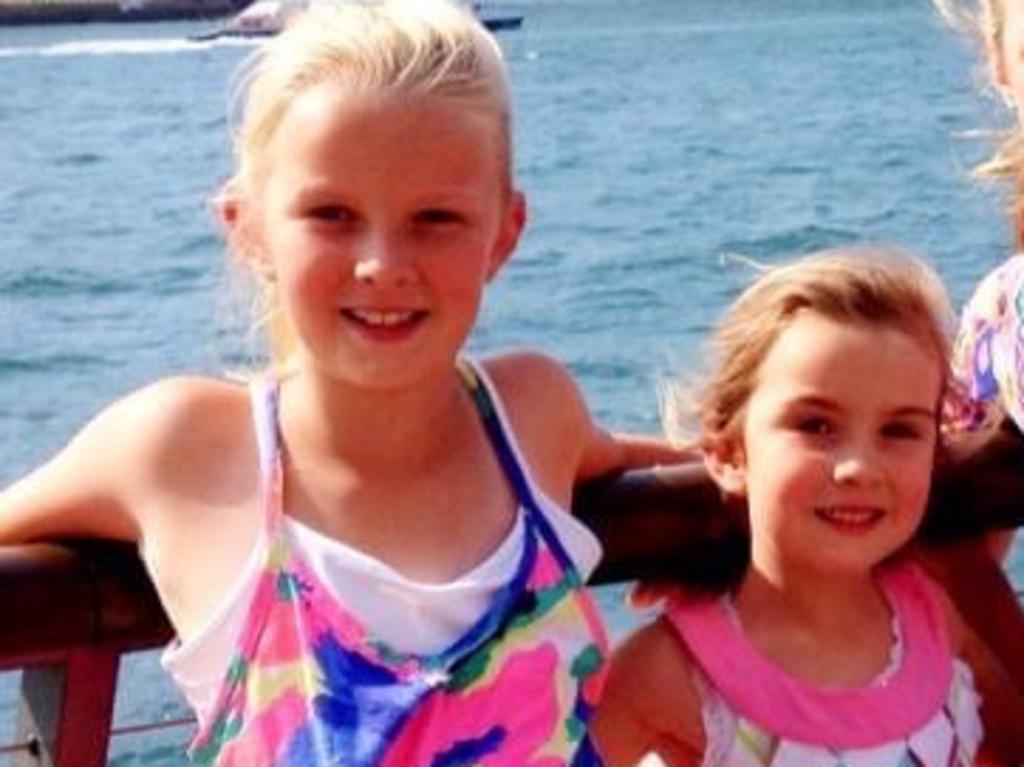
Eventually the accused was found guilty of six counts of aggravated indecent assault against Pippa, but other charges against Rose and the other two children were dropped.
Both sisters describe the court process as being “cruel” and “traumatic”, saying that even with the partial conviction, they left the legal system far more traumatised than they arrived.
After a six year wait, in June this year the sisters decided to head back to court to seek permission to tell their own story in public.
They wish to do so to raise awareness about the “trauma of the system”, and have launched a petition urging the NSW Attorney-General to fully fund a program designed to make it easier for children to give evidence at court.
‘Mum, I need to tell you something’
When Rose was five years old, she woke her mum, Michelle Milthorpe, after spending the night sleeping in her bed. She had something to say.
She told her parents that an older man who was a family friend had been sexually abusing her and her sister Pippa. Both parents swung into action and police were contacted.
Due to under-resourcing it would take eight long days before a formal interview could take place and then two and a half years before the matter finally made it to court.
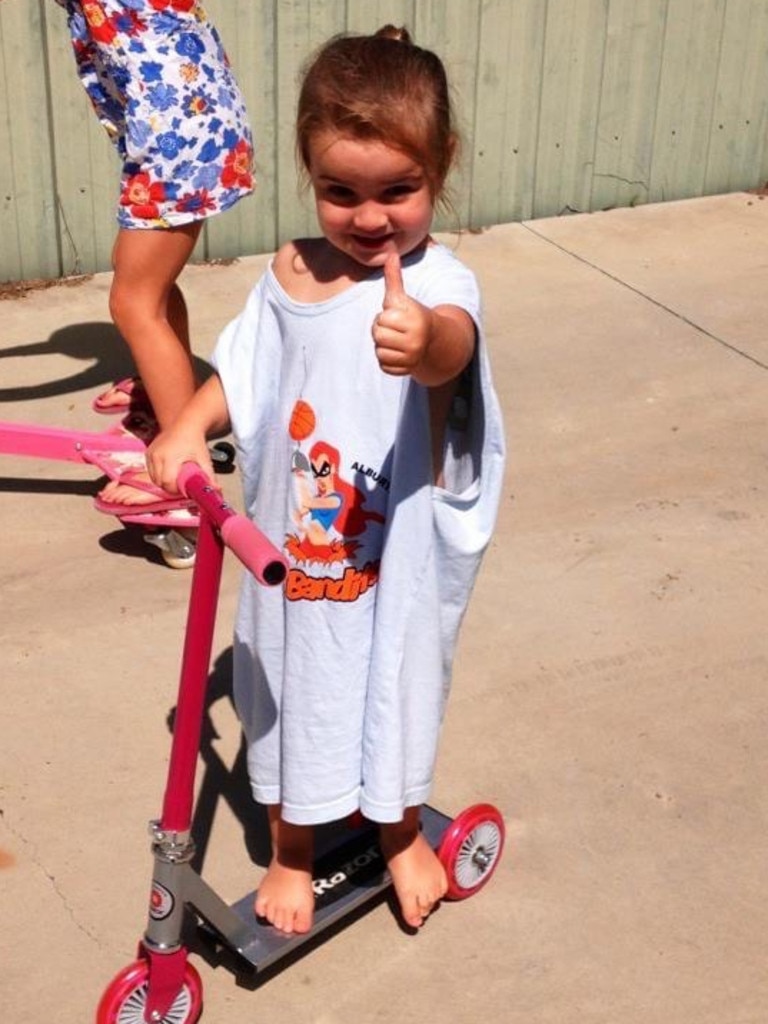
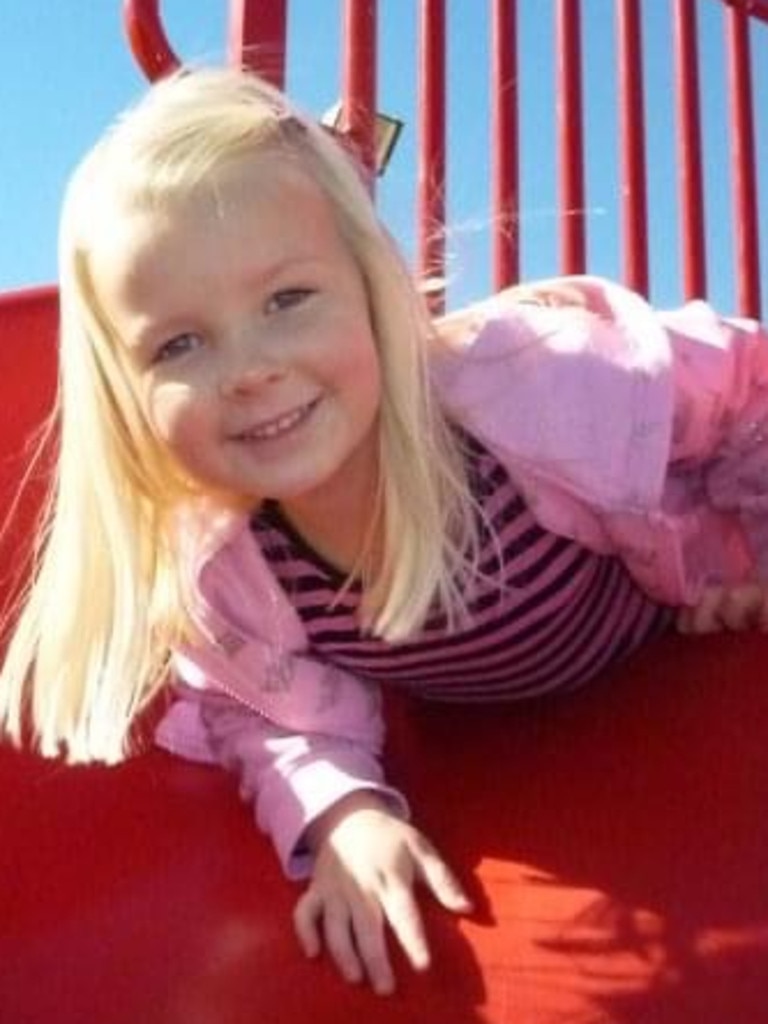
During that time, three Christmases would come and go. As the girls reached milestones, passing birthdays, annual report cards, they were told not to discuss the matter with each other or other witnesses, which included both parents and their older sister Maggie.
“We were told that we need to keep our story to ourselves pretty much,” Pippa says.
“So between talking to the police and the court process, you are warned not to talk too much so you don’t contaminate the trial.
“And then obviously before that, the actual abuser tells us not to say anything.
“Then you go to court and it’s the opposite, you know, tell us, tell us more. They want every last detail and you go over it and over it.
“And then you finish court and once again we are told that because of our ages, we can’t talk about it in public, or to the media unless we get court permission.
“It’s almost like placing shame on us all again. It’s do speak, don’t speak, do speak, no don’t speak. And we found that particularly hard.”
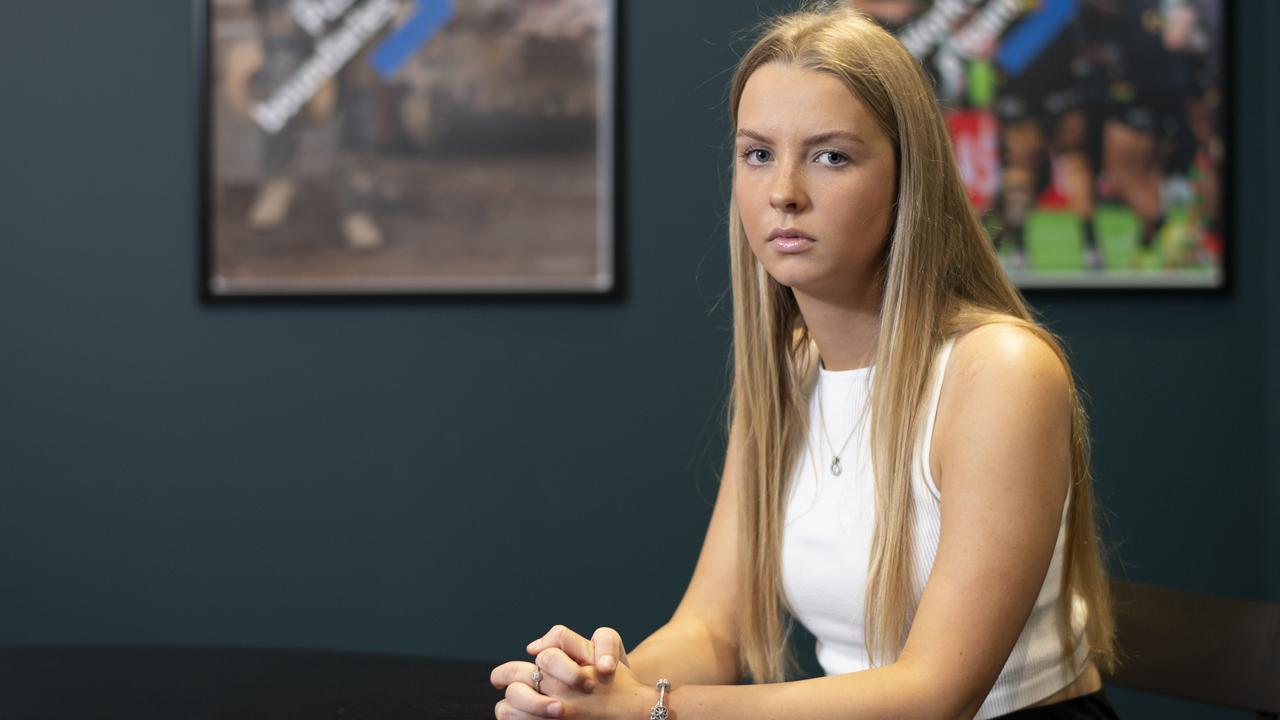
The confusion and feelings of powerlessness over owning their own story was only one aspect of the trauma.
“I think the worst part that needs to be changed is how they interact with the children [in court],” Rose says, adding she felt “intimidated, trapped and alone”.
“I felt like they were trying to trick me because of my age. So using my age against me.”
Pippa agrees.
“My experience with the court system was quite traumatic,” she says.
“I was under questioning for five days. I couldn’t understand half the language that was used. It was very scary, especially as an 11-year-old talking to mature adults that you’ve never met before about something that personal.
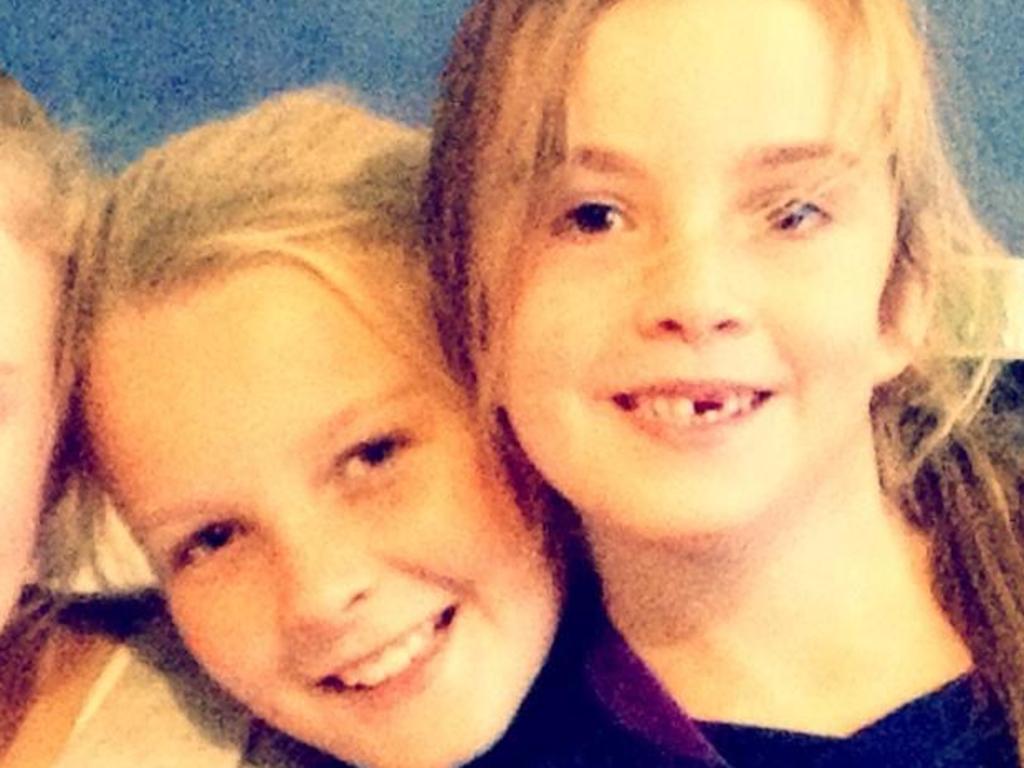
“I personally had to listen to my own police questioning videos twice. You are being forced to remember these things that you don’t necessarily want to.
“And by the time you get to the court case two and a half years later, you don’t remember the important details or you don’t remember the specific details that they want you to remember.
“Those huge delays are not good for the memory. And then they use that against you in court and use memory gaps to suggest you are a liar or making it up.”
‘So nervous, sad and sick’
During the court process neither sister was allowed to have a parent present, and funding for a support person from Albury ran out once the trial – which was initially intended to run for one to two weeks – blew out to more than five weeks.
A second support person was introduced, but was then also let go after she made eye contact with one of the girls.
There were other issues too. The girls would spend hours in a waiting area exposed to other children’s trauma, as they waited with children impacted by other crimes.
“There was one girl who was there because she had been sexually abused by her father,” Pippa says. “I watched her coming and going into her room in tears. It made me feel so nervous and sick and sad for her.”
The Downing Centre also deals with drug offences and other serious criminal matters, exposing the girls to a confronting array of people.
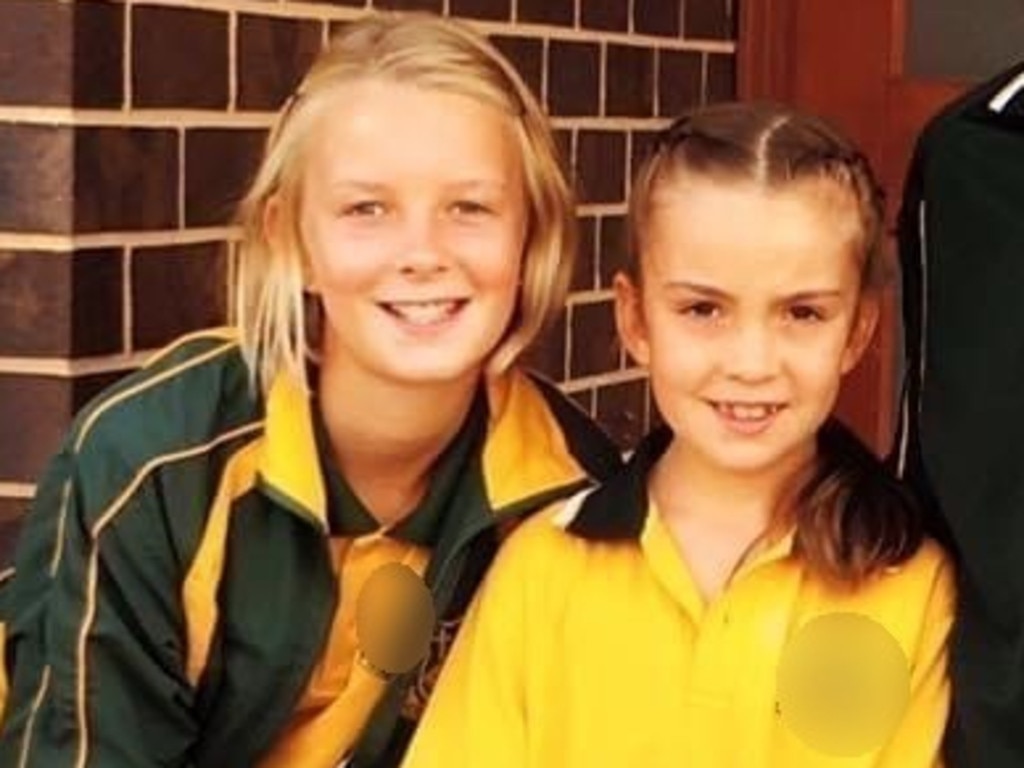
After waiting in this intense environment, Pippa was finally called to the stand herself.
“Being cross-examined is mean,” Pippa says. “That’s what 11-year-old me would say. I didn’t know how to answer questions. And so when they asked me questions, and I didn’t know how to answer, I didn’t have the confidence to tell them that, and to tell them I didn’t understand their language.”
An analysis of the court transcript shows that on more than 80 occasions, Pippa became distressed and could not answer the question being asked of her. The offender would later try to use this as grounds for an appeal.
“I would just freeze up and then they tried to use that against me in the court saying I wasn’t fit to be in the courtroom,” Pippa says.
“I just want children to not have to be revictimised because it’s one thing to be victimised or to be harmed by an adult who has sexually abused you. Then it’s a completely [different] thing to be harmed or victimised by the court process. And that’s exactly what it is at the moment.”
Justice, but at a cost
The offender was convicted of six counts of aggravated indecent assault against Pippa. He was acquitted of four charges of aggravated indecent assault in relation to Rose.
One of the other children pulled out after a day of cross examination, saying she couldn’t go on due to distress. The other, who was four at the time, was deemed too young to take the stand, so those charges were dropped too.
The paedophile served a two year and six month jail sentence for the crimes against Pippa and has since been released back into their community.
We stand with Rose and Pippa
News.com.au is proud to stand with the Milthorpe family and today, in partnership with them we are launching our exclusive Justice Shouldn’t Hurt campaign, to compel the Attorney-General, Mark Speakman, to expand the Child Sexual Offence Evidence program, which is designed to make court less traumatic for children.
While it is highly unusual for Australian media to name children who have been involved in court proceedings, in this instance we have made a rare editorial exception after the girls spent six months fighting through court for the right to say their own names.
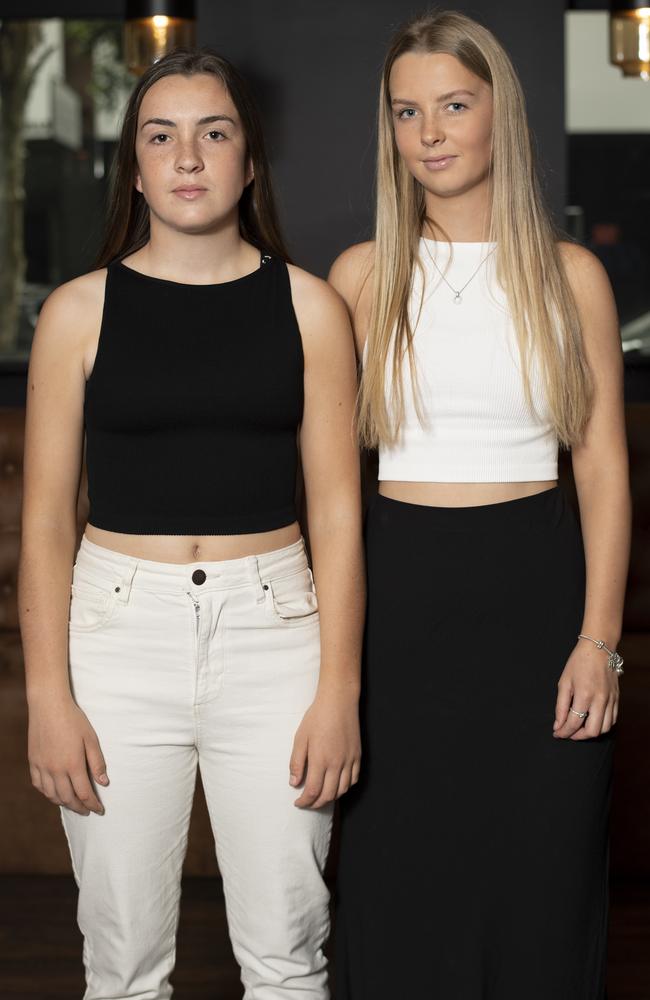
We have elected not to name the offender and have removed reference to graphic details of abuse and other allegations aired in court.
In NSW sexual abuse survivors can waive their right to anonymity in the media, provided they are 14 years or older.
While both girls are already 14, court permission was still required as their case involved other children who have not been named.
The program
The sisters, who are now in high school, have started a petition urging the NSW Attorney-General to expand a program so that other children do not have to suffer like they did in court. The Child Sexual Offence Evidence Program was introduced in 2016, the same year that the girls went to court, but the girls were not eligible to participate.
The program has already received outstanding evaluation from independent academics at UNSW who say that the use of witness intermediaries, recorded evidence and specialist judges reduces wait time and trauma.
At present the program is only available in two locations: Sydney and Newcastle, yet an investigation by news.com.au reveals that up to 96 per cent of the state’s children who may have need of the program are not eligible to access it.
“We know that it is a program that is set up to help kids in court make it easier for the way they give evidence and the way they are cross-examined,” Pippa says.
“It’s done over a much quicker time frame, so it’s not so long sitting around and waiting and having to relive memories.
“It’s pretty much giving your interview to the police and then within six months, it’s all put together and that’s what goes to court. So it’s not as traumatising and you’re not stuck in a victim-state. You can begin to heal and move on.”
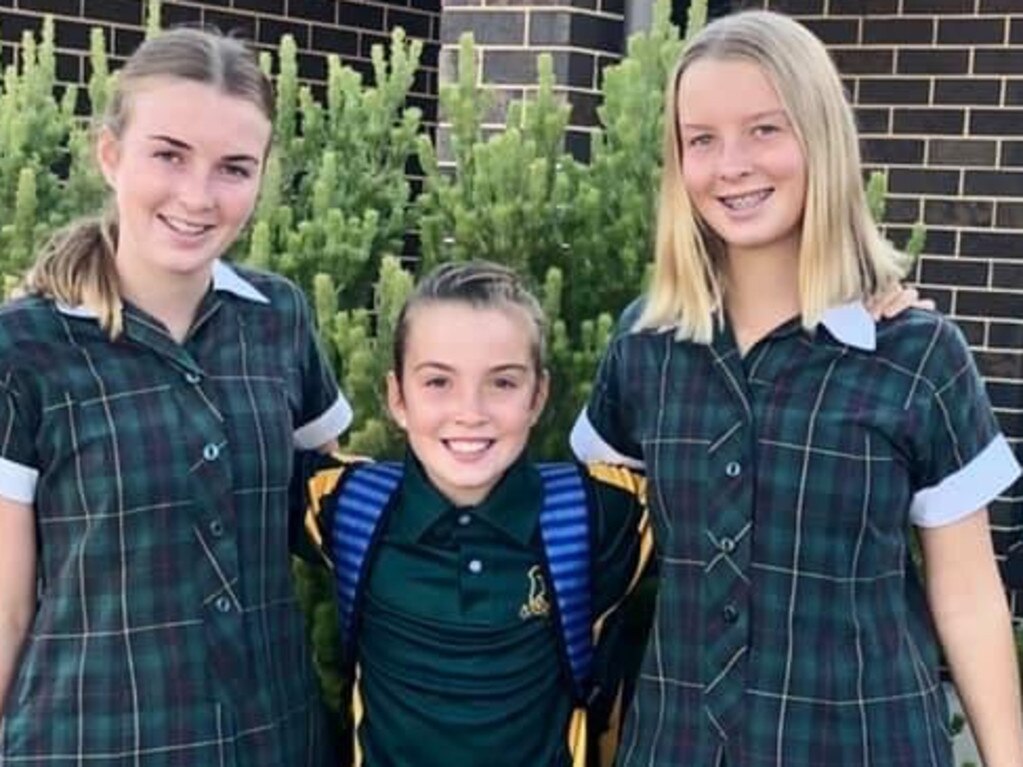
Rose and Pippa say they hope the program is made fully accessible to all children who have need of it.
“The biggest thing for us is we live in a rural community, we live in a small town, so we don’t really have access to certain services,” Pippa says. “And with the program it’s only available at the moment to people in Sydney and Newcastle. Obviously a lot of people in New South Wales don’t live in the cities.
“It’s an injustice in itself not being available for everyone.”
In September, they travelled to Sydney where they hand delivered a written letter to the Attorney-General, Mark Speakman. It read in part:
Why are you allowing some children to continue being traumatised by a process that you are the head of? We ask that you make this pilot program available to all children in NSW – help them to try to get some justice by providing them with the opportunity to give evidence in a safe and supported environment that recognises that they are children and helps them all start their healing journey sooner.
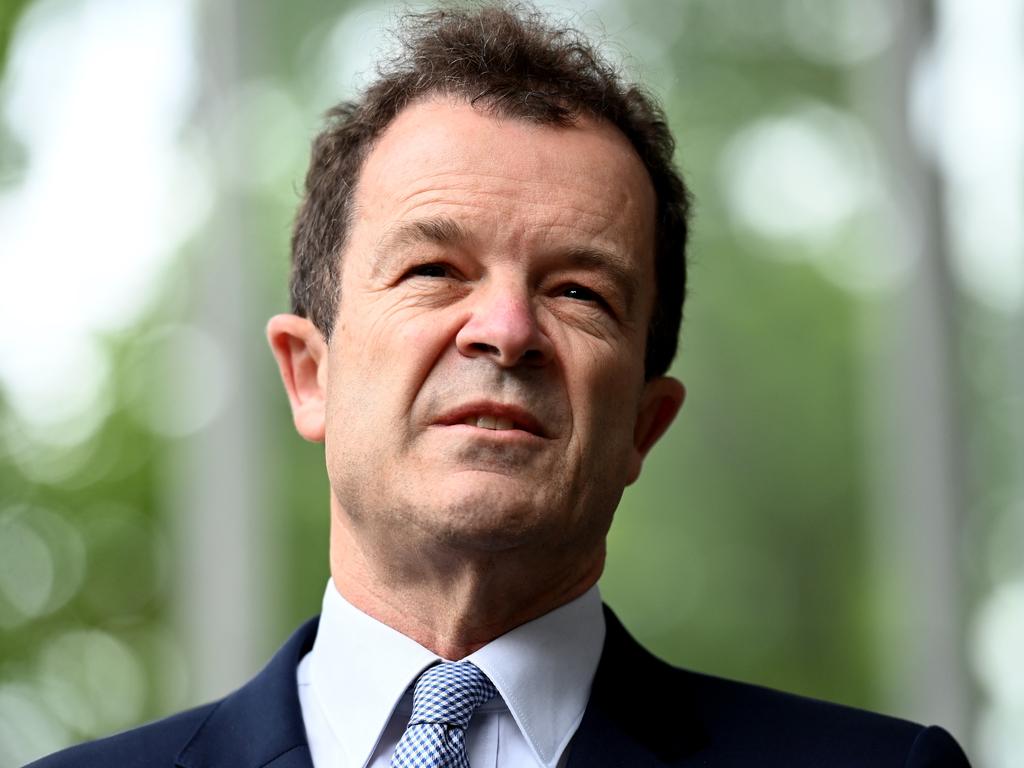
In October, they received a response to say that the Attorney-General had read their letter and was grateful for their views, but the letter included no commitment to further fund the program.
“We want the Attorney-General to hear how the court process affected us,” Pippa says. “And it was in more negative ways than positive. I genuinely couldn’t really give you a positive outcome from court. It was a very belittling process. And six years later we still have to live with it today.
“Justice should be a healing process. It shouldn’t be a retraumatising process.”
Ironically, the Government boasted that the program was being “made permanent”.
The Government issued press release from November 2018:
The pilot program is being made permanent after a glowing independent assessment by the University of NSW, which showed that it received very strong support from participants, reduced stress for children and resulted in a better quality of evidence from child witnesses.
Mr Speakman said the program is proving vital to ensuring children understand and are understood during the court process.
“Going to court can be stressful and traumatic for anyone, let alone young people. This program ensures that some of the most vulnerable people who come in contact with the justice system get the support they need,” Mr Speakman said.’
âš–ï¸ The @NSWDstCt Child Sexual Offence Evidence Pilot will become a permanent program after #UNSW evaluation: less trauma + better evidence from children through use of witness intermediaries, pre-recorded evidence + specialist judges https://t.co/bhmhhGBD4N#auslaw#nswlawpic.twitter.com/jE27PDURnk
— Mark Speakman (@MarkSpeakman) November 18, 2018
The community is coming together
Already the girls’ fight has attracted the interest of multiple experts who support their call to expand the program.
Today, 15 academic and sector experts have joined our Justice Shouldn’t Hurt campaign’s call for action, including the former Federal Children’s Commissioner, Megan Mitchell AM, Bravehearts founder Hetty Johnston AM, Rape & Sexual Assault Research & Advocacy CEO, Dr Rachael Burgin, Full Stop Australia CEO, Hayley Foster, current Bravehearts CEO Alison Geale, as well as Professor Judy Cashmore AO who evaluated the program in 2017.
“The program should not be regionally restricted” Professor Cashmore, who is now based at the University of Sydney Law School, says. “It shouldn’t be a postcode lottery as to whether you have access. It is an equity issue that children across NSW who need it, should have access to it.”
Already this year, the girls have hosted movie nights, a football game, and a bike ride to raise funds and awareness for their campaign, including $15,000 to be donated to charity in their name.
“It was good, very empowering to see everyone come together and support this cause. They didn’t necessarily understand all about it at first, but they wanted to learn more and start the conversation,” Rose says.
The sisters say that breaking down stigma and silence in a regional community is vital.
“People are coming up on the street and having a conversation asking how it is all going,” Pippa says.
“It’s definitely all positive. There has been no negative feedback. Everyone has been really supportive.”
Earlier this year the girls completed a fundraising bike ride for National Child Protection Week. The ride made a pitstop at St Therese’s New Lambton Primary School in Newcastle.
“When we rode in the kids were screaming. They were clapping like we were famous,” Rose says with a laugh. “It was so good. The kids understood why we were there and they asked lots of good questions.”
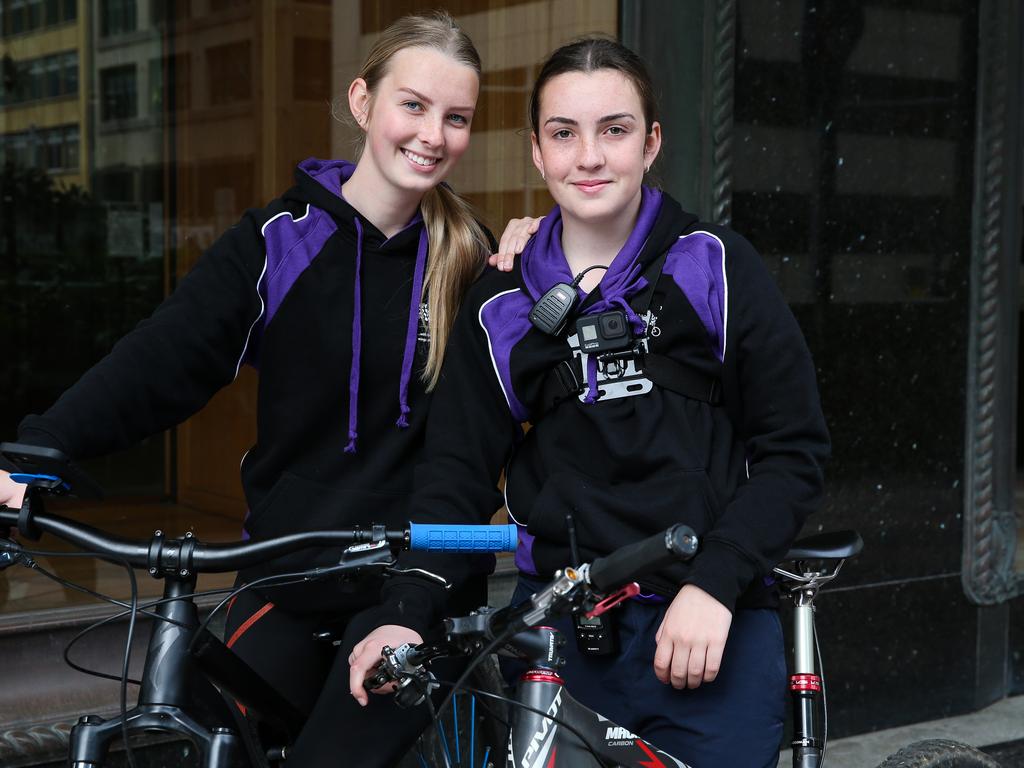
For the sisters, this was its own victory.
“I want to be able to educate, empower and prevent sexual abuse and limit the trauma caused during the court process,” Pippa says.
“I am not the slightest ashamed of my story. I shouldn’t feel bad for opening up about what I experienced.”
Rose feels similarly. “I want to raise awareness and for people to feel no shame in speaking out. I want to let people know that it’s okay to speak up. There’s no shame behind it because your word is way more powerful than anything.”
We need 20,000 signatures today. Join the movement and sign the petition here.
Nina Funnell is a Walkley Award winning journalist and sexual assault survivor advocate who has created the Justice Shouldn't Hurt Campaign in exclusive partnership with news.com.au.
Contact us: ninafunnell@gmail.com
Read related topics:Justice Shouldn't Hurt




